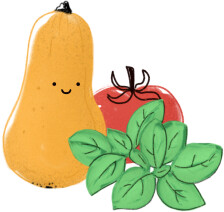Pampasgras 'Weiße Feder'

Variety
Pampasgras 'Weiße Feder'
created by Alex&Sempi at 19.02.2025
Features
Growth habit
lifespan: perennial
fast growth
seed-fixed: yes
ornamental plant
root type: deep-rooted
Location
Heat requirement: high
Fertilization: nutrient-rich
fertilization: humus-enriched
Soil: sandy to loamy
pH value: acidic to neutral (5,5-7)
Water: sparingly
pH value: neutral to alkaline (7-8)
Soil moisture: moderately dry to fresh
Resistances
Winter hardy
Season Overview
Sowing
Harvest
Harvest
J
F
M
A
M
J
J
A
S
O
N
D
1ST YEAR
FOLLOWING YEARS
Description
Pampas grass (Cortaderia selloana) is one of the most eye-catching ornamental grasses and delights with large, white panicles of flowers in summer. The full German name for this species is actually American pampas grass, but as it is the most widespread of all the pampas grass species and the others are not available in Germany, it is usually referred to simply as pampas grass, rarely also as silver pampas grass. Like the other 14 or so species of pampas grass, it originates from the tropical and temperate zones of South America and New Zealand, where it grows on sandy and alluvial soils. It belongs to the sweet grass family (Poaceae). It is not completely hardy in our latitudes and requires winter protection. The leaves of this clump-forming grass only grow to a height of around 80 centimetres, but the flower panicles can reach heights of up to 250 centimetres. The individual leaves are gray-green, narrow, sharp-edged and winter-green. They are quite stiff, but arch over in the upper part. Pampas grass reaches its peak during its flowering period from August and then well into winter, when the magnificent panicles of flowers, which are slightly reminiscent of feather dusters, rise above the foliage. They can also be cut and make a beautiful ornamental display in tall vases and containers when dried. The best time to do this is before the flowers have fully opened. You should then dry the stems for two days in a shady spot before arranging them in the vase.
F1 Hybrid
Not frost resistant
Growing tips
Location and soil
Details
Light requirement
Sunny
Water requirement
Moist
Soil
Medium (loamy)
Nutrient requirement
High
Light germinator
Germination temperature
20 - 22 °C (Degrees Celsius)
Plant distance
120 cm
Row spacing
120 cm
Seeding depth
0.2 cm
Companion Plants
Antagonistic Plants
Diseases
Root Rot
Septoria
Angular leaf spot of cucumber
Pests
Spider mites
Land snails
Aphids